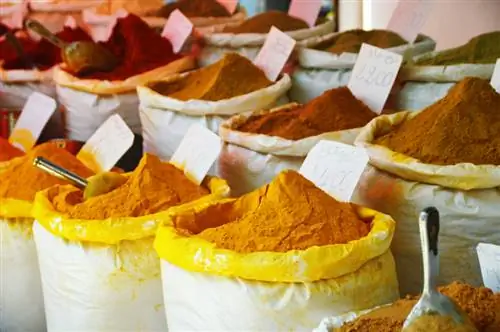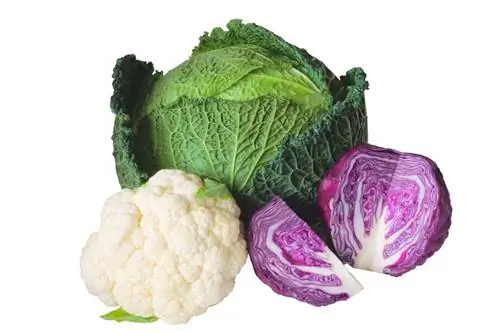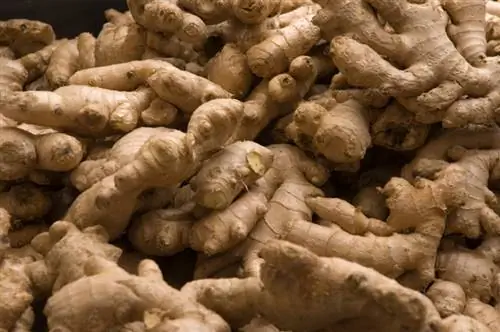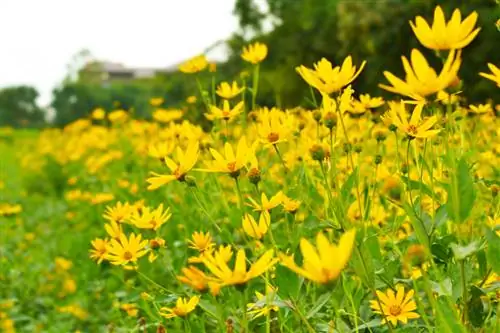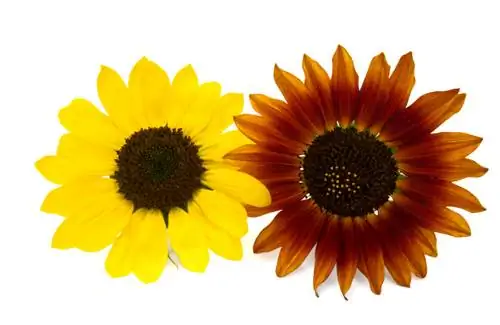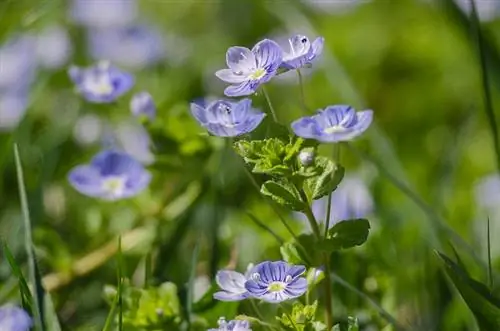- Author admin [email protected].
- Public 2023-12-16 16:46.
- Last modified 2025-01-23 11:19.
In this country, ginger has become established as a tea base or as a spice in the last ten years. In addition to the commercially available ginger bulbs, there are many other plant varieties that also belong to the ginger family.
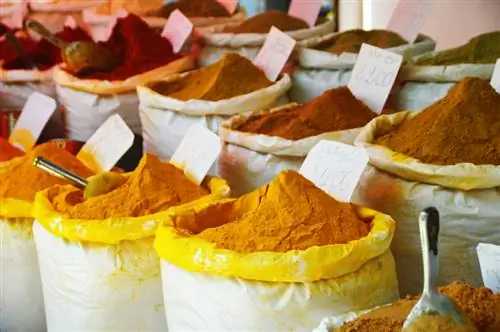
What types of ginger are there?
Ginger species include over 1200 varieties from the subfamily Zingiberoideae, such as Gagnepainia, Hemiorchis, Camptandra and Curcuma, which are used as tea, spice and ornamental plants. Well-known varieties are Alpinia galanga (Thai ginger) and Boesenbergia rotundia (Chinese ginger).
Basic properties of ginger
The various types of ginger are almost always herbaceous plants, the most important part of which lies below the surface of the earth for harvesting. Ginger, which can only be cultivated seasonally in our latitudes, stores its energy reserves in a juicy tuber so that it can sprout again after the winter rest. Since all types of ginger without exception come from tropical latitudes, growing ginger is only possible in pots or under glass.
The type of tea used for tea and spice purposes
The commercially available ginger tubers are usually the underground plant components of the subfamily Zingiberoideae. This in turn includes more than 1200 different varieties, including:
- Gagnepainia
- Hemiorchis
- Camptandra
- Curcuma
- Cautleya
- among others
Propagation from tubers
The ginger plants from the subfamily Zingiberoideae are generally not propagated from seeds. Rather, some of the rhizome-like tubers are saved after harvest and overwintered in a cool and dry cellar. New plants can then be grown in spring from parts of the tubers that are at least the size of a cube.
Types of ginger for use in the kitchen
Numerous types of ginger tubers are suitable for consumption. For example, the Alpinia galanga variety is also known as Thai ginger. The Chinese ginger of the variety Boesenbergia rotundia is sometimes also traded under the name fingerroot. The stem of Cautleya spicata is often eaten as a vegetable in Asia, but the plant is also said to have medicinal properties.
Ginger as a flowering plant
The over 1000 different subspecies of the ginger family are not only very valuable as part of Asian cuisine. Many varieties of ginger also produce amazingly large and exotic flower formations. Theoretically, these types of ginger can also be propagated by seeds, but the summer season in this country is usually too short for the seeds to ripen.
Tips & Tricks
The curry spice is actually not an independent spice, but a spice mixture. An essential component of this is curcuma, which is obtained from the root of a type of ginger.

